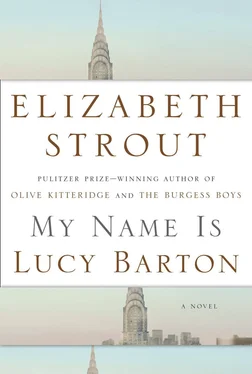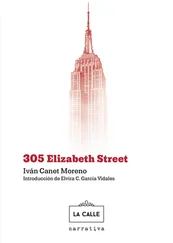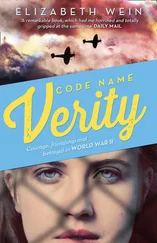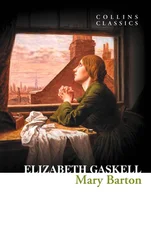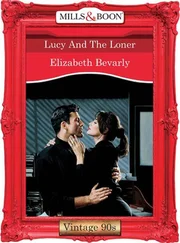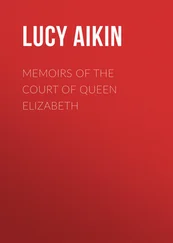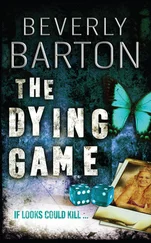I have never seen her since.
“Say,” my mother said. This was the fourth day my mother had been sitting at the foot of my bed. “You remember that Marilyn girl — what was her name, Marilyn Mathews, I don’t know what her name was. Marilyn Somebody. Do you remember her?”
“I remember her. Yeah,” I said. “Sure.”
“What was her name?” my mother asked.
“Marilyn Somebody,” I said.
“She married Charlie Macauley. Do you remember him? Sure you do. You don’t? He was from Carlisle, and — well, I guess he was more your brother’s age. They didn’t go out in high school, he and Marilyn. But they got married, they both went to college — in Wisconsin I think, at Madison — and—”
I said, “Charlie Macauley. Wait. He was tall. They were in high school when I was still in junior high. Marilyn went to our church and she helped her mother serve the food for Thanksgiving dinners.”
“Oh, of course. That’s right.” My mother nodded. “You’re right. Marilyn was a very nice person. And I told you that already — that she was more your brother’s age.”
I suddenly had a clear memory of Marilyn smiling at me one day when she passed me in the empty hall after school, and it was a nice smile, like she was sorry for me, but I felt she did not want her smile to seem condescending. That was why I always remembered her.
“ Why would you remember her?” my mother said to me. “If she was older like that. Because of the Thanksgiving dinners?”
“Why would you remember her?” I said to my mother. “What happened to her? And why would you know?”
“Oh.” My mother let out a great sigh and shook her head. “A woman came into the library the other day — I go to the library in Hanston some days now — and this woman looked like her, like Marilyn. I said, ‘You look like someone I knew, who was about the age of my kids.’ And she didn’t answer, and that — that makes me very angry, you know.”
I did know. I had lived my life with that feeling. That people did not want to acknowledge us, be friends with us. “Oh, Mom,” I said tiredly. “Screw ’em.”
“ Screw them?”
“You know what I mean.”
“I see you’ve learned lots living in the big city.”
I smiled at the ceiling. I didn’t know a person in the world who would have believed this conversation, yet it was as true as any can be. “Mom, I didn’t have to move to the big city to learn to say ‘screw.’ ”
There was a silence, as though my mother was considering this. Then she said, “No, you probably only had to walk to the Pedersons’ barn and hear their hired hands.”
“The hired hands said a lot more than the word ‘screw,’ ” I told her.
“I imagine they did,” my mother said.
And this is when — recording this — I think once more, Why did I not just ask her then? Why did I not just say, Mom, I learned all the words I needed to right in that fucking garage we called home? I suspect I said nothing because I was doing what I have done most of my life, which is to cover for the mistakes of others when they don’t know they have embarrassed themselves. I do this, I think, because it could be me a great deal of the time. I know faintly, even now, that I have embarrassed myself, and it always comes back to the feeling of childhood, that huge pieces of knowledge about the world were missing that can never be replaced. But still— I do it for others, even as I sense that others do it for me. And I can only think I did it for my mother that day. Who else would not have sat up and said, Mom, do you not remember?
I have asked experts. Kind ones, like the doctor who was kind; not unkind people, like the woman who spoke so meanly to Sarah Payne when she jumped at the cat. Their answers have been thoughtful, and almost always the same: I don’t know what your mother remembered. I like these experts because they seem decent, and because I feel I know a true sentence when I hear one now. They do not know what my mother remembered.
I don’t know what my mother remembered either.
“But it did get me thinking about Marilyn,” my mother continued in her breathy voice, “and so I asked later in the week when I saw that so-and-so person from the — oh, you know, Wizzle, the place—”
“Chatwin’s Cake Shoppe.”
“That place,” my mother said. “Yes, the woman who still works there — she knows everything.”
“Evelyn.”
“Evelyn. So I sat down and had a piece of cake and a cup of coffee and I said to her, ‘You know, I thought I saw Marilyn what’s-her-name the other day,’ and this Evelyn, I always liked her—”
“I loved her,” I said. I did not say I loved her because she was good to my cousin Abel, good to me, that she never said a word when she saw us going through the dumpster. And my mother did not ask why I loved her.
My mother said, “Well, she stopped wiping the counter and she said to me, ‘Poor Marilyn married that Charlie Macauley from Carlisle, I think they still live nearby now, but she married him back when they were in college, and he was a smart fellow. So of course they take the smart ones right away.’ ”
“Who takes them?” I asked.
“Why, our dirty rotten government, of course,” my mother answered.
I said nothing, just looked up at the ceiling. It has been my experience throughout life that the people who have been given the most by our government — education, food, rent subsidies — are the ones who are most apt to find fault with the whole idea of government. I understand this in a way.
“What did they take Marilyn’s smart husband for?” I asked.
“Well, they made him an officer, of course. During those Vietnam years. And I guess he had to do some terrible stuff, and from what Evelyn was telling me, he’s never been the same. So early in their marriage this happened, very sad. Very, very sad,” my mother said.
I waited quite a while, quite a while I waited, lying there with my heart thumping, I can remember even now the thumping, the banging of my heart, and I thought of what I had — to myself — always called the Thing, the most horrifying part of my childhood. I was very frightened lying there, I was frightened that my mother would mention it after all these years, after never mentioning it ever, and I finally said, “But what does he do — as a result of this experience? Is he mean to Marilyn?”
“I don’t know,” my mother said. Her voice seemed suddenly tired. “I don’t know what it is he does. Maybe there’s help these days. At least there’s a name. It’s not like they were the first people to be trauma — whatever the word is — by a war.”
In my memory of this, I was the one to get us away as fast as we could now, as fast as we could, from where my mother may — or may not — have known she was headed.
“I hate to think of anyone being mean to Marilyn,” I said, then I added that the doctor hadn’t yet come in to see me.
“It’s Saturday,” my mother said.
“He’ll come anyway. He always does.”
“He won’t work on a Saturday,” my mother said. “He told you yesterday to have a good weekend. To me that doesn’t sound like he works on a Saturday.”
Then I became afraid. I became afraid that she was right. “Oh, Mommy,” I said, “I’m so tired. I want to get better.”
“You’ll get better,” she said. “I’ve seen it clearly. You’ll get better, and you’ll have some problems in your life. But what matters is, you’ll get better.”
“Are you sure?”
“I am sure.”
“What problems?” I asked this in a way that tried to sound joking, as though what did I care about a few problems?
Читать дальше
